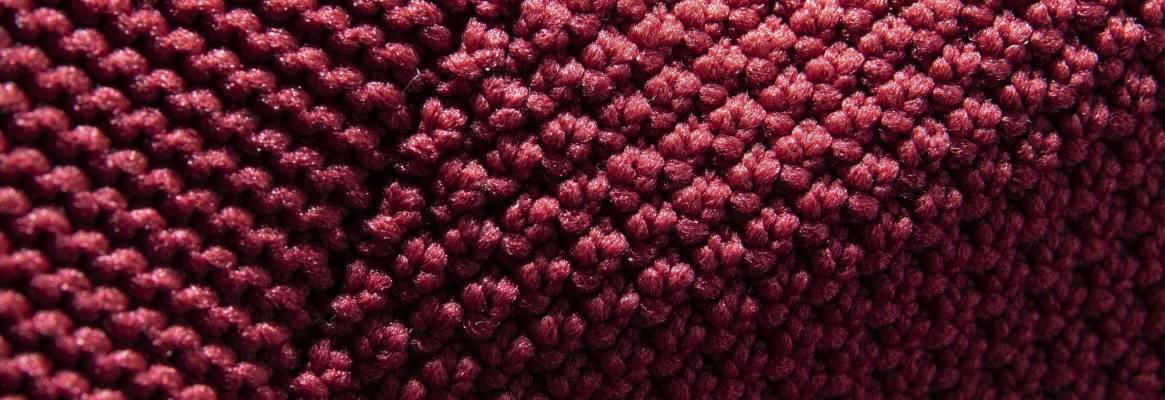The pandemic has changed how we do most things – how we socialize, what we wear, how we look, and how we work. It has been dubbed the 'new normal,' and how we adapt to this new normal can potentially shape our future.
One of the most significant adjustments we've made was with regard to how we work – working from home or, instead, working at home. Working parents have had to navigate online school while trying to remain productive. Deadlines and working hours have become hazy, as people find themselves struggling to draw boundaries between personal time and working hours.
That being said, it is hard to ignore one of the best parts about working at home – not having to dress to impress! The shift in the work construct has equally shifted the fashion requirement of the modern consumer to that of comfort and style. Consumers are looking for garments that have versatility – enabling them to wrangle a toddler at breakfast and seamlessly move into giving a presentation on a zoom call with minimal change to their attire.
Consumers have also been paying more attention to the environment. They have seen the positive effects of the pandemic on the planet – including cleaner air and oceans and the growth of wildlife. Hence, they are more conscious of their carbon footprint and are seeking ways to be more responsible as consumers.
Sustainability has always been a driving force behind innovation in the fashion industry. There are many ways it can be implemented - from using recyclable materials, eco-friendly manufacturing processes, and changes in the supply chain.
One of the more recent innovations in fabric sustainability has been Engineered Knit or E-Knit, essentially made from a combination of staple and filament yarns. This process of E-Knit allows for manipulating the core properties of the fabric, such as thickness, breathability, and heat regulation. The result is a garment that gives a superior fit, provides adequate support and ultimate comfort to the wearer. E-Knit also allows the elimination of seams on the garment that can cause skin irritation and let it transform into almost a second skin, making it feel light, breathable, and snug on your body.
A company pioneering the use of E-Knit technology is MAS Holdings, South Asia's largest apparel tech company, through its subsidiary - MAS Matrix. MAS has over 30 years of experience and knowledge in product development coupled with the latest developments in technology in the industry. With these capabilities, MAS has simplified, streamlined, and applied E-Knit technology, completely revolutionizing the traditional knit process.
Not only is E-Knit fabric a delight to put on, but it also can be highly sustainable.
MAS' E-Knit properties score high on the sustainability quotient in comparison to other alternatives. E-Knit relies on more degradable and recycled material, staple yarns such as cotton or wool, and natural dyes while ensuring less energy consumption. This has led to as much as 15% - 25% reduction in wastage during seamless E-Knit production, in the case of outerwear.
Overall, E-Knit technology provides a one-stop-shop solution to the consumer's demands - the creation of a garment that is both superior in comfort, beautiful in aesthetic, and sustainable. The advanced E-Knit process also provides targeted applications that allow for precision, customization, and faster design to development, which hugely benefit the manufacturer.
The introduction of E-Knit has opened up greener avenues for MAS. The company is hoping to see a sizeable growth in its customer base with this offering.
"Our knit capabilities are enabling us to create consumer-centric and purposeful products. We are excited to partner with world-class product specialists to create breakthrough solutions," says Palitha Liyanage, CEO of MAS Matrix.
MAS firmly believes that adopting E-Knit technology is the way forward for brands looking to transition into sustainable athleisure or loungewear.
About MAS
MAS Fabrics - Matrix is the product creation and manufacturing centre for engineered flat knit, located at the MAS Fabric Park in Thuruliya, Sri Lanka. Fully owned by MAS Holdings, Matrix brings together sourcing, design and manufacturing capabilities under one roof, making the construction of customised technical knit garments faster, simpler and more streamlined.
Founded in 1987, MAS Holdings is recognized today as a fully integrated, sustainable apparel manufacturer, employing over 100,000 people across 16 countries. MAS spans 57 manufacturing plants with established design locations placed in key style centres worldwide. The MAS portfolio has expanded exponentially, filtering into and revolutionising brands, wearable technology, FemTech, start-ups, and fabric parks worldwide. MAS provides design-to-delivery solutions to leading global apparel brands.










Comments